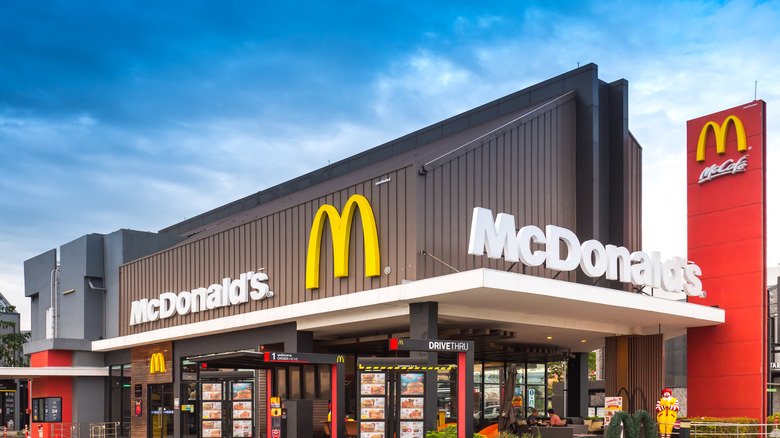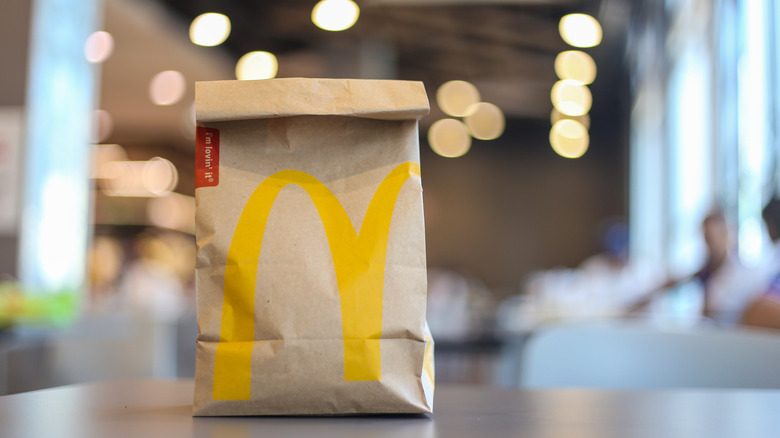The Surprising Way McDonald's Really Makes Its Money
Ever since its founding in the mid-20th century, McDonald's has been one of the most profitable companies in the world. The brand is so iconic, in fact, that its famous "Golden Arches" logo is one of the most recognizable symbols of all time, right up there with the crucifix and the Nike swoosh. We all know that McDonald's is a fast food restaurant that sells affordable, convenient meals and treats to people across all socioeconomic statuses. The company has expanded greatly over the past several decades and has rarely come up short as far as research and innovation goes.
But how is the admired American company able to make so much money — and remain wildly successful despite a fluctuating economy — from such an inexpensive menu? The truth is, McDonald's is much more than a fast food company that offers hungry customers burgers, shakes, chicken McNuggets, and fries. Instead, it's actually a massive real estate business.
How does McDonald's make its money?
When you break down the company's multi-billion dollar earnings, it boils down to real estate. According to Nation's Restaurant News, McDonald's is actually one of the largest real estate companies in the world. It owns well over $28 billion worth of land and buildings. It also leases the land and buildings on around 15,000 of its sites. How, exactly, does a fast food restaurant make so much revenue?
McDonald's essentially controls all of the real estate on which its restaurants are built or move into, then leases its sites to franchisees at a considerable markup. The amount McDonald's charges its franchisees for monthly rent depends on how much they invested, but the leases typically range between 8.5 and 15 percent. According to McDonald's official website, the investment to open a franchise ranges from $1,008,000 to $2,214,080.
This genius financial concept came from the mind of Harry Sonneborn, the first appointed president and chief executive officer of McDonald's Corporation. Working closely with Ray Kroc, McDonald's founder, Sonneborn proposed that the company would own the land and make money from the leases paid by franchisees (via Inc.). And if an individual location proved itself to be prosperous, McDonald's would benefit by pocketing a percentage of that restaurant's sales in lieu of collecting rent. At the end of the day, the billions of tasty burgers devoured by fans have certainly contributed to the brand's superstardom, but real estate has proven itself as the champion.

